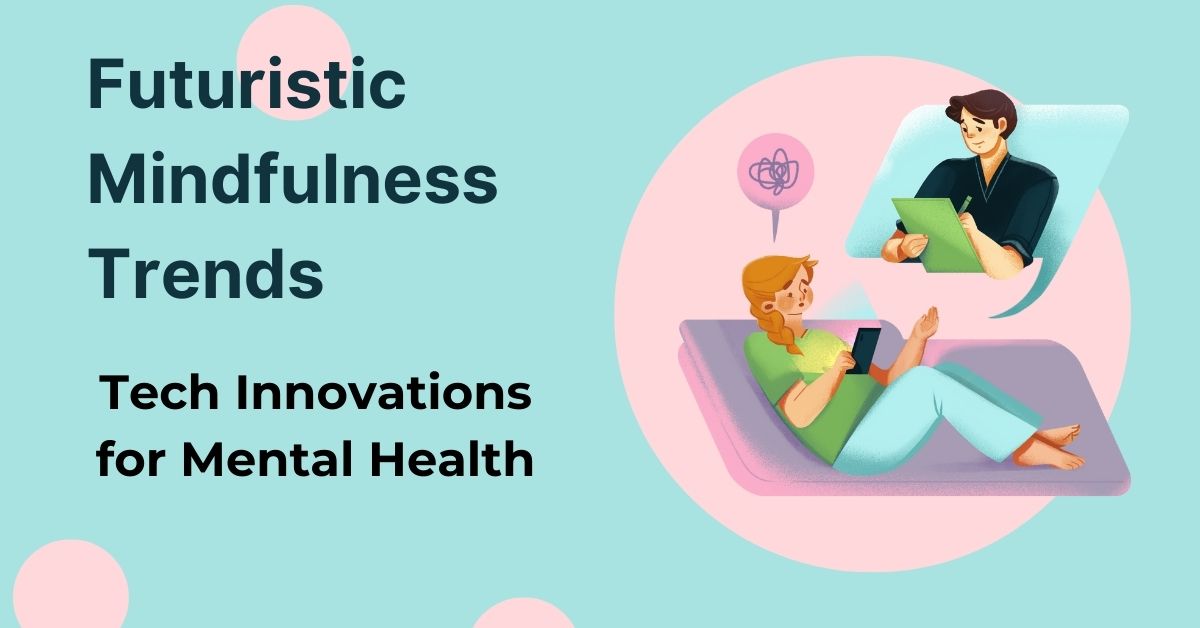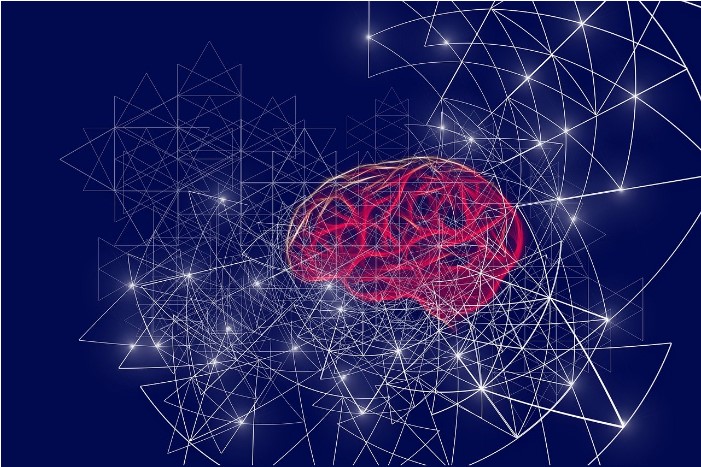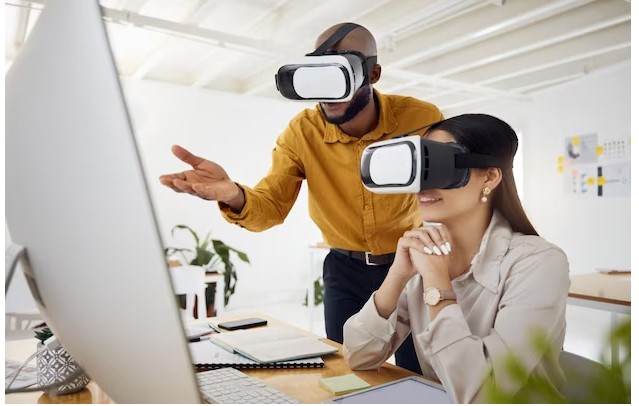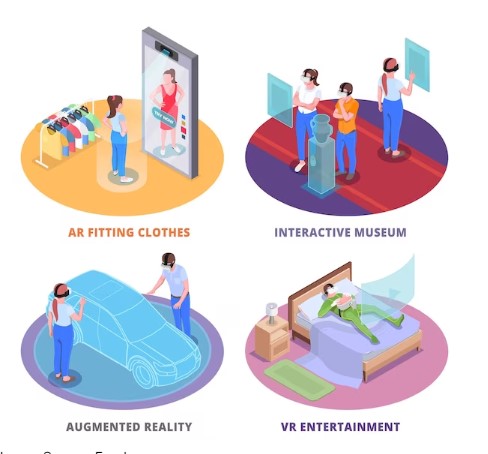Futuristic Mindfulness Trends: Using Tech Innovations for Mental Health
In the fast-paced digital age we live in, finding inner peace and maintaining mental health has become more challenging than ever. However, with the rapid advancements in technology, a wave of futuristic mindfulness trends has emerged that leverage these innovations to promote mental well-being. From virtual reality experiences that transport users to serene natural environments to smartphone apps that provide guided meditation sessions on the go, technology is becoming an integral part of our mental health toolkit.
The Importance of Mindfulness in the Digital Age
In a world filled with constant distractions and information overload, practicing mindfulness has become essential for maintaining our mental well-being. Mindfulness, a practice rooted in ancient traditions, involves paying attention to the present moment without judgment. It allows us to cultivate a sense of calm and clarity amidst the chaos of the digital age.
However, the very same technology that contributes to our stress and anxiety can also be harnessed to promote mindfulness. By embracing tech innovations, we can leverage the power of these advancements to enhance our mental health and find peace in a chaotic world.
Tech Innovations for Mental Health
As technology continues to evolve, so do the opportunities for incorporating it into our mindfulness practices. In this section, we will explore some of the most exciting tech innovations that are revolutionizing the field of mindfulness and mental wellness.
Virtual Reality (VR) and Augmented Reality (AR) in Mindfulness
Virtual reality and augmented reality technologies have gained significant traction in recent years, offering immersive experiences that transport users to different environments. These technologies are now being utilized in the realm of mindfulness, allowing individuals to escape the stresses of everyday life and find solace in serene natural settings.
By donning a VR headset, users can experience breathtaking landscapes, such as tranquil forests or peaceful beaches, without ever leaving their homes. This immersive experience not only helps to alleviate stress but also encourages a sense of awe and wonder, fostering a deeper connection with nature.
Wearable Technology for Mindfulness and Stress Management
Another area where technology is making waves in the field of mindfulness is wearable technology. Biometric wearables, such as smartwatches and fitness trackers, now have the ability to monitor various physiological parameters, including heart rate and skin conductance, which can be indicators of stress levels.
These devices provide real-time feedback on stress levels, allowing individuals to become more aware of their emotional states and take proactive steps to manage stress. Some wearables even offer guided breathing exercises or relaxation techniques to help users alleviate stress in the moment.
Artificial Intelligence (AI) and Machine Learning in Mental Health Apps
Artificial intelligence and machine learning algorithms are being integrated into mental health apps to create personalized meditation experiences. These apps analyze user data, such as mood patterns and stress levels, to tailor meditation sessions specifically to individual needs.
By adapting the content and duration of meditation sessions based on user preferences and responses, these AI-powered apps can enhance the effectiveness of mindfulness practices. They provide a personalized and dynamic approach to meditation, ensuring that users receive the most relevant guidance for their mental well-being.
Gamification of Mindfulness Practices
Gamification, the application of game design elements in non-game contexts, has found its way into the world of mindfulness. By gamifying mindfulness practices, developers are able to make the experience more engaging and enjoyable for users.
Mindfulness apps are incorporating elements such as progress tracking, achievements, and challenges to motivate individuals to maintain a regular mindfulness practice. These gamified features not only add an element of fun but also provide a sense of accomplishment, reinforcing the habit of mindfulness.
The Future of Mindfulness: Neurofeedback and Brain-Computer Interface (BCI) Technology
Looking ahead, neurofeedback and brain-computer interface (BCI) technology hold great promise for the future of mindfulness. Neurofeedback is a technique that allows individuals to observe their brain activity in real-time. By providing feedback on brainwave patterns, individuals can learn to regulate their brain activity and achieve a state of deep relaxation and focus.
BCI technology takes this a step further by enabling individuals to control external devices using their brain activity. This technology has the potential to revolutionize mindfulness practices, allowing individuals to deepen their meditation experiences and enhance their mental well-being.
Ethical Considerations and Potential Challenges of Using Tech Innovations for Mental Health
While tech innovations offer exciting possibilities for enhancing mindfulness and mental health, it is essential to consider the ethical implications and potential challenges that come with their use.
One concern is the potential for overreliance on technology, which may result in a detachment from real-world experiences. It is important to strike a balance between utilizing technology as a tool for mindfulness and maintaining a direct connection with our surroundings.
Another consideration is the privacy and security of personal data collected by these tech innovations. As we continue to integrate technology into our mental health practices, it is crucial to ensure that data is protected and used responsibly.
Additionally, the accessibility of these tech innovations should be taken into account. While they offer great potential, it is important to ensure that they are accessible to individuals from diverse backgrounds and socioeconomic statuses, so that everyone can benefit from the advantages they offer.
Conclusion: Embracing Tech Innovations for a Mindful Future
As we navigate the challenges of the digital age, it is important to embrace the tech innovations that can aid us in our journey towards mindfulness and mental well-being. From virtual reality experiences that transport us to serene environments to wearable technology that tracks our stress levels, these innovations have the potential to revolutionize the way we approach mental health.
However, it is crucial to approach these innovations with mindfulness and ethical considerations. By striking a balance between utilizing technology and maintaining a direct connection with our surroundings, we can harness its power to enhance our well-being and find peace in a chaotic world.
In this ever-evolving landscape, it is exciting to witness the fusion of ancient practices and futuristic technologies, creating a mindful future that is accessible to all. Let us embrace these innovations and embark on a journey towards a more mindful and mentally healthy future.






